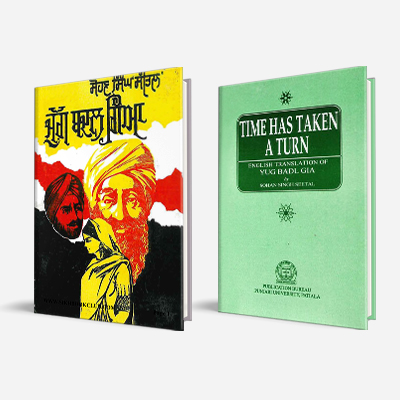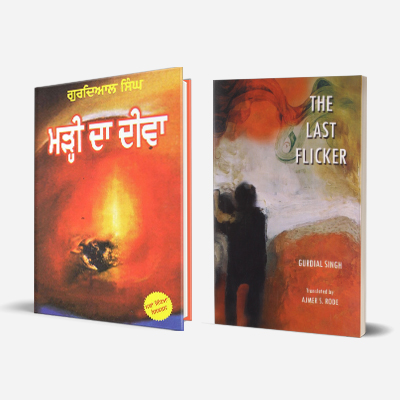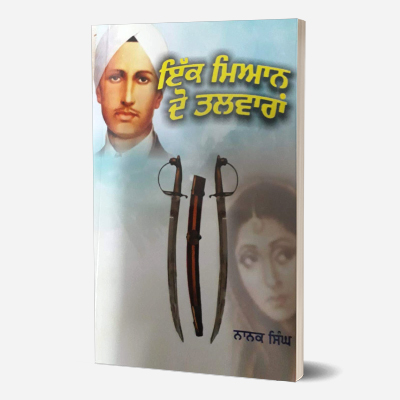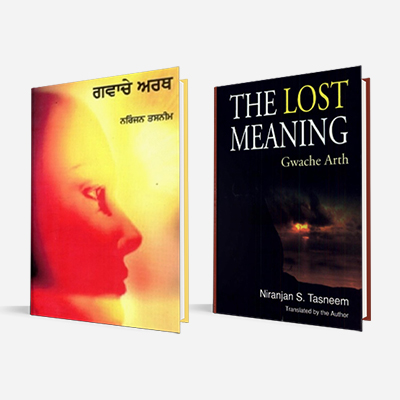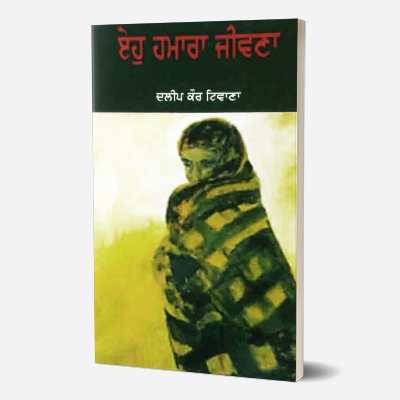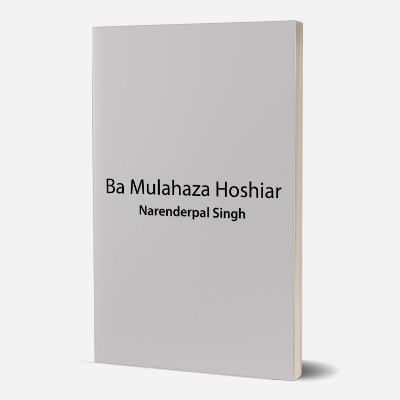Jug Badal Gaya
By Sohan Singh Seetal
Translated into English as Time Has Taken a Turn by Prof (Dr) Tejwant Singh Gill (1998)
A typical rural drama enacted in the heart of Punjab—the novel portrays Dalit life in a simplistic manner. It also asserts how, even in a predominantly patriarchal milieu, strong women can maintain their agency and dignity. The protagonist Lakha Singh, became a big zamindar by cleverly usurping the lands of small farmers under various pretexts. Lakha Singh’s sly and clever acts lead him into marrying his wife’s sister Swarni to obtain a child. After Swarni’s death, Lakha convinces Rajo, another woman, to marry his servant but practically to be kept as his wife. The 1947 partition in India makes Lakha lose all his property and relatives, only to be left with Rajo and her son, Jarnail Singh whom he has to accept legally to finalise his claims in Refugees Resettlement Department at Jalandhar. The novel won the Sahitya Akademi Award in 1974.
About the Author
Sohan Singh Seetal is a Punjabi author, poet and lyricist. He entered the field of fiction after 1947 and wrote several novels, some of which deal with the situation of women in Punjabi society. Sheetal gives very vividly authentic description of the life of the people in rural Punjab. Dive di Lo (The Flame of the Earthen Lamp), Mul da Mas (Flesh at a price) and Badla (Revenge) are some of his important works.
Marhi Da Deeva
By Gurdial Singh Rahi
Translated into English as The Last Flicker by Ajmer S. Rhode
The novel traces the trajectory of the havoc wrought in the lives of the lower caste protagonist Jagseer and his mother Nandi. His father has an affable bond with Dharam Singh. However, Bhanta Singh, Dharam’s son does not have a friendly relationship with Jagseer. The ill-timed death of Nandi wrought by the oppressive operation of power exercised by Bhanta deteriorates the physical and psychological health of Jagseer. Also, he falls in love with the bride (Bhani) of his newly married friend Nikka. His inability to turn the secret love into a legitimized relationship pushes him down a path of self-pity and his addiction to opium hastens his ill-timed death. It won the Sahitya Akademi Award in 1975.
About the Author
Gurdial Singh Rahi was a Punjabi language writer, novelist and Migration Agent from Punjab, India. He started his literary career in 1957 with short stories. He became known as a novelist when he published the novel Marhi Da Deeva in 1964. Singh was honoured with the Padma Shri in 1998 and Jnanpith Award in 1999.
Also read
Anhey Ghore Da Daan (1976)
Translated as Alms in the Name of a Blind Horse by Rana Nayar
It portrays the plight and problems of Punjabi farmers, rural working class, as well as the landlords. The landlord sells his plots to an industry that demolishes the house of one of the villagers who refuses to vacate it. The focus shifts from family to family, and from character to character as the inner billings of a village on the verge of being gulped by industrialists has begun to take its toll within, despite the inhabitants. The novel won the Jnanpith Award in 1999 and was also adapted for film (2011) by Gurvinder Singh.
Ik Miyan Do Talwaran
By Nanak Singh
The historical novel is set in Haranpur village, now in West Pakistan. The story revolves around the revolutionary movement of 1914-1915 which attracts Sudarshan and Biri, children of Baba Sukhdev Singh Sodhi, a resident of the village. The influence of literature written by revolutionaries on the young minds and the attraction that Biri feels towards Kartar Singh Sarabha, one among the many revolutionaries, navigates the plot of the novel further. Sarabha’s death, the failed revolution and the revenge taken by Biri ties the end of the novel. The unusual relationship between Biri and Sarabha charged by political spirit and revenge stands out. It won the Sahitya Akademi Award in 1961 and has been hailed as an outstanding contribution to Punjabi literature for the depth of treatment and realistic characterisation.
About the Author
Widely regarded as the father of modern Punjabi novel, Nanak Singh wrote an astounding fifty-nine books, which included thirty-eight novels and an assortment of plays, short stories, poems, essays and even a set of translations. He gave a new turn to Punjabi short story, investing it with pace and finesse. Romantic love and social criticism are the recurring themes in his writings. Gandhian idealism pervaded Singh’s fiction and reflected his strong support for India’s independence movement which also led the British to arrest him.
Also read
Adh Kidhiya Phool
Translated as A Life Incomplete by Navdeep Suri
All that sustains Kuldeep Singh through his dark days in jail, where he is serving a term for participating in anti-British agitations, are thoughts of his beautiful wife and the dream of going home. But he returns to find that his wife has died, leaving behind their infant child. As his world collapses around him, he negotiates the divergent pulls exerted by people around him: a holy man who advocates renunciation; his childhood friend Saroj, who has always loved him; and the tempestuous Prakash who hides an unsavoury past. Sahitya Akademi Award-winning author Nanak Singh draws on personal experiences to create this compelling portrait of Punjab in the 1920s. Originally published in Punjabi in 1940, Adh Kidhiya Phool is an intense meditation on the choices people make and the consequences these may have. Singh’s engagement with social issues like superstition and blind faith, religious bigotry, casteism and the emancipation of women seems as fresh and relevant today as it did when he wrote this book.
